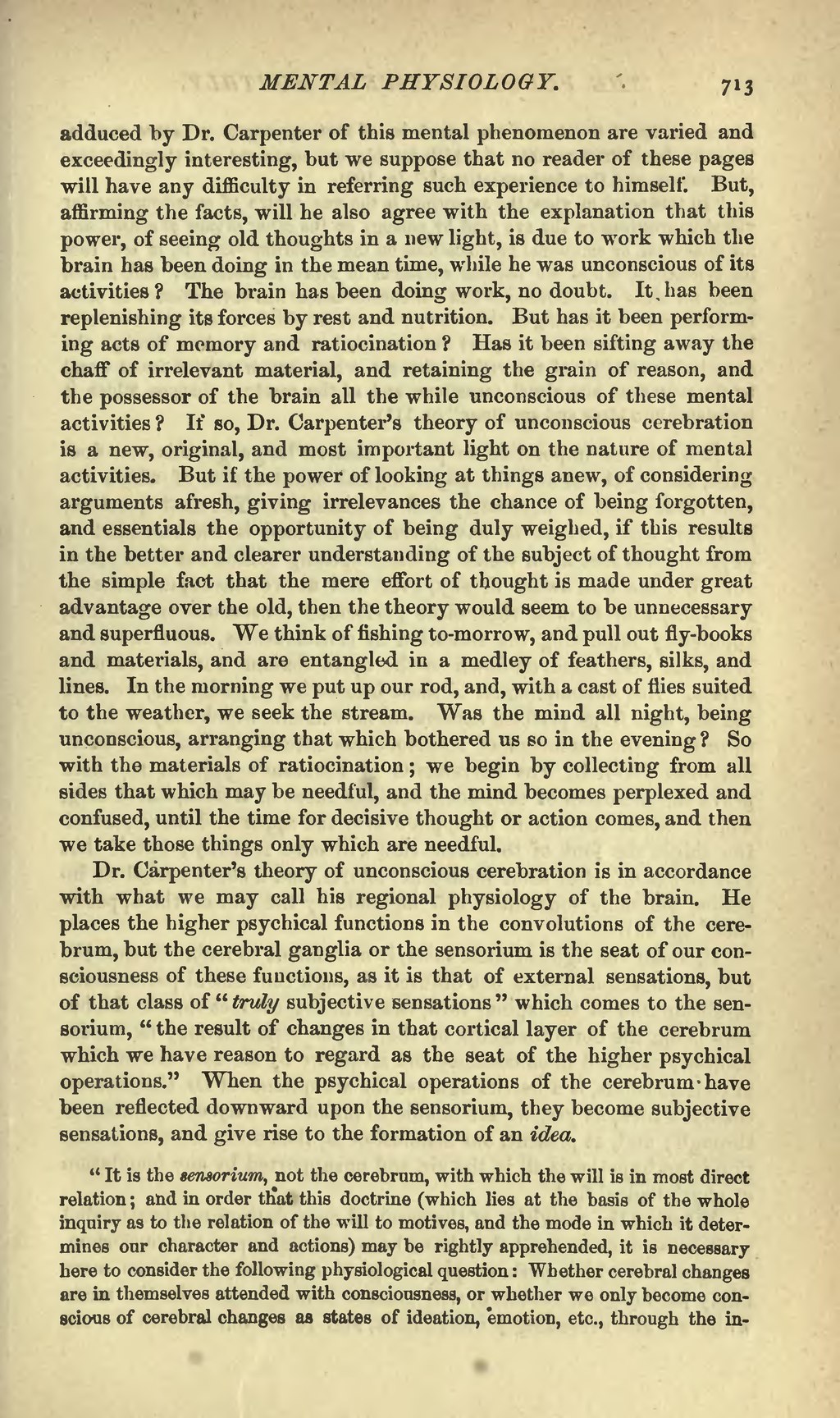adduced by Dr. Carpenter of this mental phenomenon are varied and exceedingly interesting, but we suppose that no reader of these pages will have any difficulty in referring such experience to himself. But, affirming the facts, will he also agree with the explanation that this power, of seeing old thoughts in a new light, is due to work which the brain has been doing in the mean time, while he was unconscious of its activities? The brain has been doing work, no doubt. It, has been replenishing its forces by rest and nutrition. But has it been performing acts of memory and ratiocination? Has it been sifting away the chaff of irrelevant material, and retaining the grain of reason, and the possessor of the brain all the while unconscious of these mental activities? If so, Dr. Carpenter's theory of unconscious cerebration is a new, original, and most important light on the nature of mental activities. But if the power of looking at things anew, of considering arguments afresh, giving irrelevances the chance of being forgotten, and essentials the opportunity of being duly weighed, if this results in the better and clearer understanding of the subject of thought from the simple fact that the mere effort of thought is made under great advantage over the old, then the theory would seem to be unnecessary and superfluous. We think of fishing to-morrow, and pull out fly-books and materials, and are entangled in a medley of feathers, silks, and lines. In the morning we put up our rod, and, with a cast of flies suited to the weather, we seek the stream. Was the mind all night, being unconscious, arranging that which bothered us so in the evening? So with the materials of ratiocination; we begin by collecting from all sides that which may be needful, and the mind becomes perplexed and confused, until the time for decisive thought or action comes, and then we take those things only which are needful.
Dr. Carpenter's theory of unconscious cerebration is in accordance with what we may call his regional physiology of the brain. He places the higher psychical functions in the convolutions of the cerebrum, but the cerebral ganglia or the sensorium is the seat of our consciousness of these functions, as it is that of external sensations, but of that class of "truly subjective sensations" which comes to the sensorium, "the result of changes in that cortical layer of the cerebrum which we have reason to regard as the seat of the higher psychical operations." When the psychical operations of the cerebrum have been reflected downward upon the sensorium, they become subjective sensations, and give rise to the formation of an idea.
"It is the sensorium, not the cerebrum, with which the will is in most direct relation; and in order that this doctrine (which lies at the basis of the whole inquiry as to the relation of the will to motives, and the mode in which it determines our character and actions) may be rightly apprehended, it is necessary here to consider the following physiological question: Whether cerebral changes are in themselves attended with consciousness, or whether we only become conscious of cerebral changes as states of ideation, emotion, etc., through the in-
